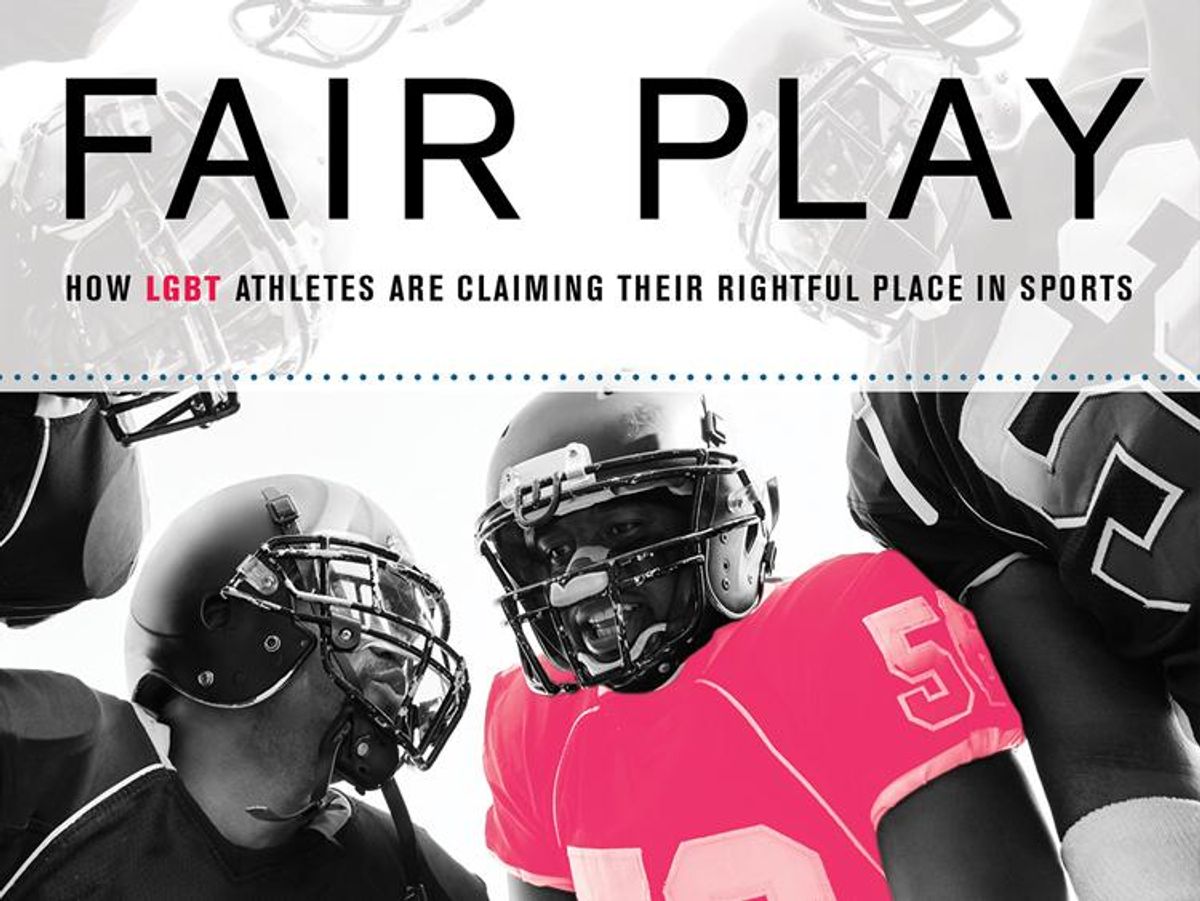I had sex with a straight man once. He dated women, had a girlfriend. We met through work when I was a development executive at Disney just a year or so after starting Outsports. We bonded over our love of college basketball and one afternoon were sitting around my apartment in Los Angeles watching an NBA game. I don't know how it started or who started it, but somehow the conversation turned to sex. I won't dive too far into the details, but one thing led to another. Like it does.
When we finished, he cried. He said he had wondered about sex with another guy, but he always told himself he couldn't explore it. Jesus, the Bible, masculinity, the whole "gay guys don't do sports" thing--he offered up insightful yet all-too-familiar thoughts on his own internal homophobia with which I had once struggled. He left my apartment shortly after a quick handshake, quite shaken. As he walked out the door I knew I'd lost a friend to the secret truth so many straight men carry to their graves.
He called two weeks later, looking to hang out again. It was then I realized a powerful distinction: he hadn't cried in my apartment that day because he hated his sexual experience with me; he cried because he didn't.
It's that same mindset that drives most of the homophobia in locker rooms--particularly men's locker rooms. It's homophobia in the truest sense, an actual fear of homosexuality. Most everything else is rationalization.
Sure, some people have moral objections to gay sex, usually based on the Bible. But even devout Christians like Kurt Warner, Landry Jones, and Michael Irvin, who say they live their lives first and foremost for God, find ways to open their hearts to gay people and gay teammates. While some of these men may continue to oppose the idea of same-sex marriage or believe homosexuality is a sin, they understand that a locker room is made up of divergent beliefs, of which theirs is just one. Morality and the Bible are the rationalizations, not the reasons, for so many people saying they don't want gays in the locker room.
You can't welcome dog killers, child beaters, and rapists while claiming some moral objection to a teammate loving another man.
"Simple things, as far as showers and things like that, you know, of course, anyone would be uncomfortable," Adrian Peterson said in 2013. Why would someone like Peterson, who says he'd welcome a gay teammate, assume discomfort because there's an out gay man in the shower?
The fear we hear about most behind locker room attitudes is a disgust of being "looked at naked" by a teammate who happens to be gay. We hear this mostly from the men. They don't carry a fear of being raped or touched; no rational person thinks that's going to happen in a locker room surrounded by an entire team. Instead, these men are worried that their naked bodies will be simply seen by the eyes of a gay man. There's an odd subconscious feeling by some straight men that if they're "looked at" or "hit on" by gay men, being on the receiving end of that simple act somehow undermines their own heterosexuality and masculinity--that the innocent gaze of a gay man, gone unrejected, subjects the straight athlete to questions about himself. Some of those questions may even come loudest from his own mind.
I've talked to a lot of straight professional athletes about the idea of having a gay teammate. Almost universally these athletes say they would be fine with having someone gay on the team. Yet many of them couch it with a "as long as he knows how to behave" or "as long as he doesn't hit on me" disclaimer. Straight athletes feel the need to stereotype and reject gay teammates even in the same breath they use to accept them.
"I know I wouldn't be able to control myself if I were in a women's locker room," goes the drumbeat from many straight male athletes. Yes, you would. If you were changing with a bunch of women you would not launch into some uncontrolled sexual frenzy. You might make catcalls, whip their butts with wet towels, and joke about their junk out of discomfort--exactly what you do with the naked men with whom you shower.
Shortly after I came out to my close friends in Los Angeles, I was on the phone with my father. He was a state high school champion in the high jump when he was a teenager--he could hit his elbow on the basketball rim (at a time when dunking was illegal). I hadn't yet told him I was gay--in fact, I had just gotten out of a yearlong relationship with my girlfriend from college. For some reason on that call he launched into a series of jokes about gay men.
"What do you call a gay dentist?" he asked. I was stunned and couldn't fathom a guess. "A tooth fairy."
I dipped my toe in the topic on that phone call, and my dad told me what he had said several times before: "If a gay guy ever hit on me, I'd punch him in the face."
What's the big fear of being looked at by a gay person? Why do some straight men feel their masculinity--their very heterosexuality--will be questioned if a gay teammate sees his penis in the shower, or if a gay man at a club tells him he looks handsome that night? Are these men afraid of a pack of gay wolves lurking in corners of locker rooms, ready to pounce on unsuspecting straight athletes if they allow a gay man to look at them? Are they afraid a casual glance will somehow turn into more? Hardly.
Like my straight friend that day in my apartment, they're afraid of what it means if they don't mind it.
So many men who are seen naked by gay men, or who are hit on by other men, don't react because they're sickened by the thought, they react because they're afraid of what it means if they aren't sickened. These are men who want to be adored for their body--how it looks and what it can do in competition. They crave the attention, yet they need to put up a front of masculinity, couching their acceptance of nudity around a gay teammate with disclaimers. #NoHomo.
For a man confident in his sexuality, there's no issue. He knows he's straight. His teammates know he's straight. And if someone doesn't know he's straight or thinks he's not, he doesn't much care.
The rejection of gay men in the locker room isn't primarily about the Bible or even the gay man himself, it's about the lenses through which they are viewed and how people truly feel about themselves in the recesses of their subconscious.
Incidentally, my dad is now a vocal champion for gay rights. Like so many current and former athletes, he's come to a common conclusion: "What the hell was I so worried about?"

Excerpted from Fair Play: How LGBT Athletes Are Claiming Their Rightful Place in Sports. Copyright 2016 by Cyd Zeigler. Used with permission of Edge of Sports, an imprint of Akashic Books (AkashicBooks.com).



















































































Viral post saying Republicans 'have two daddies now' has MAGA hot and bothered